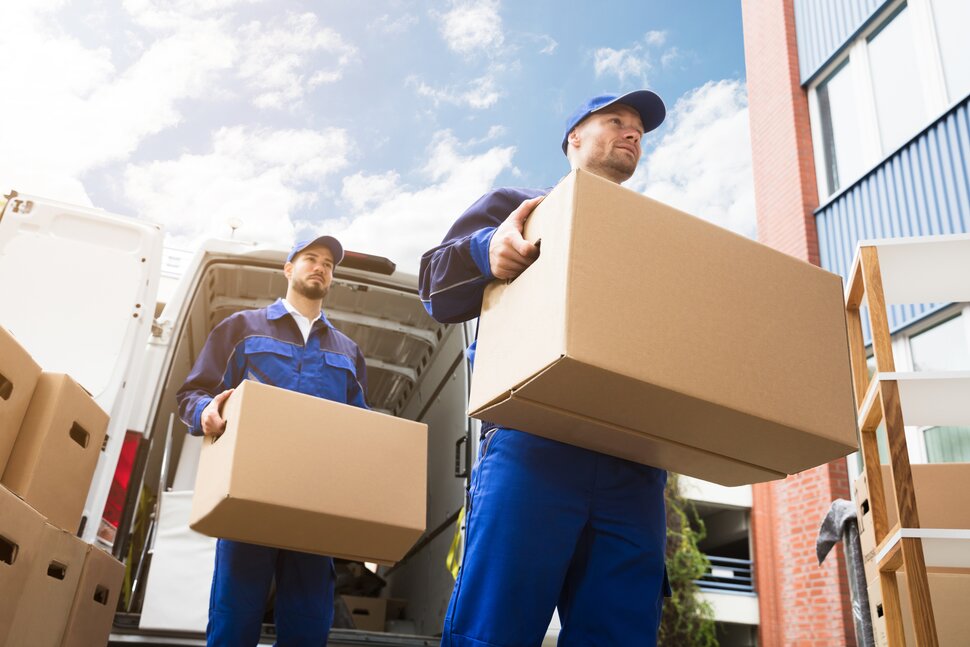Savvy Strategies: Making Your Big City Move Fast and Stress-Free
Moving to a big city can be an exhilarating adventure, opening the doors to new opportunities, diverse cultures, and a vibrant social scene. However, a lack of planning can turn this journey into a stressful endeavor.
Therefore, your move should be meticulously planned and skillfully executed to make it as smooth and stress-free as possible. This article will walk you through some savvy strategies to ensure that your big city move is both fast and hassle-free.
Planning is Key

The cornerstone of a successful move is thorough planning. Before you even start packing, create a detailed checklist or timeline to guide your actions from start to finish. Identify your moving date, create a budget, and list all tasks that need to be completed before the big day. This should include everything from securing a new residence and hiring a moving company, like the brooklyn movers, to disconnecting utilities and forwarding mail.
Research Neighborhoods
Before moving, take the time to research various neighborhoods in your target city. Factors to consider include cost of living, crime rate, accessibility to public transport, and proximity to work or schools. Use reliable sources such as city data websites, social media groups, and forums where current residents discuss neighborhood pros and cons. You may also want to visit the city to explore different areas in person.
Get Organized
Utilize apps or traditional planners to set reminders, track your budget, and manage tasks. The more organized you are, the less likely you’ll forget important details. A good rule of thumb is to start planning at least two months ahead of your move.
The Right Movers Matter

Selecting a moving company is one of the most critical decisions you’ll make. A wrong choice can result in damaged belongings, unexpected fees, or even a failed move. Here’s how to make an informed choice:
Research and Compare
Don’t settle for the first moving company you come across. Gather quotes from multiple companies, read customer reviews, and assess their credibility. Look for professional accreditations and licenses, such as membership in the American Moving & Storage Association (AMSA).
Insurance is a Must
Make sure your chosen moving company offers comprehensive insurance coverage for your belongings. This is especially crucial when moving expensive or fragile items. Review the insurance options and ensure that they match your needs.
Declutter and Pack Smart
Transporting items that you don’t need is a waste of time, money, and energy. Decluttering before a move can make the process faster, cheaper, and more organized.
Sell, Donate, or Toss
Before you start packing, sort your belongings into three categories: sell, donate, and toss. Selling items can give you extra funds for the move, while donating can offer you a sense of goodwill. Anything that’s broken or useless should be thrown away.
Packing Essentials

Invest in high-quality packing materials like sturdy boxes, bubble wrap, and packing tape. Label boxes clearly, and make an inventory to keep track of your items. Consider packing an “essentials box” that contains important items you’ll need immediately upon arrival, such as toiletries, snacks, and basic tools.
On Moving Day
Even with the best plans, things can go awry. Here’s how to stay on top of things when moving day finally arrives:
Double-Check
Make sure you have all important documents, keys, and essentials before leaving your old residence. Perform a final walk-through to ensure that you haven’t left anything behind.
Supervise the Move
Be present when the movers arrive and leave. Supervise the loading and unloading process, and ensure that nothing is damaged or misplaced.
Plan for Traffic
Big cities are notorious for traffic jams. Plan your route carefully, taking into account the time of day and any potential bottlenecks. Use traffic apps to stay updated and make real-time adjustments to your route.
Settling In

Moving is not just about transporting items from point A to point B; it’s also about settling into your new life.
Unpack Strategically
Begin with your essentials box and gradually move on to other items. It’s more practical to unpack room by room, starting with areas like the kitchen and bedroom that you’ll need to use immediately.
Explore Your New City
Take some time to explore your new environment. Familiarize yourself with local stores, parks, and other amenities. Try to meet your neighbors and perhaps even join a community group or local club to establish a social circle.
Plan for the Unexpected
While it’s crucial to plan, it’s equally important to be flexible and adapt to unforeseen circumstances. Keep a contingency fund for unexpected expenses and have a backup plan in case things go south.
Emergency Contacts
Keep a list of emergency contacts, including local hospitals, police stations, and maintenance services. You never know when you might need quick access to these essential services.
Take Care of Yourself
Moving is physically and emotionally draining. Make sure you get enough sleep, stay hydrated, and try to keep stress levels to a minimum. Treat yourself occasionally; after all, you’re embarking on a new chapter in your life.
FAQs
What is the best way to find temporary housing in a big city before making a permanent move?

One popular approach is to book an extended stay in a serviced apartment or a short-term rental through platforms like Airbnb. These options provide a home-like atmosphere and can be more cost-effective than hotels for long durations. This allows you to experience the city and its neighborhoods before committing to a permanent residence.
How can I minimize moving costs when relocating to a big city?
To cut down on moving expenses, consider a DIY move with the help of friends and family, if feasible. Alternatively, you could also look into “pod moving” where you pack a pod yourself, and a service transports it to your new location. Be mindful of the timing as well; moving during off-peak seasons can result in lower rates from moving companies.
What are some hidden costs I should be aware of when moving to a big city?
Some hidden costs include elevator fees or “flight charges” for moving items up stairs, long carry fees for moving items a certain distance from the truck to your residence, and sometimes even urban congestion fees. Always ask your moving company for a comprehensive list of all charges that may apply.
How do I go about transferring my vehicle registration and driver’s license after moving to a new city?
Each state or jurisdiction has its own set of rules for transferring vehicle registration and driver’s licenses. Usually, you have a limited timeframe (often 30 days) to make these changes after establishing residency. Visit the local Department of Motor Vehicles (DMV) or equivalent agency to find out what documents are required and to complete the process.
How can I help my pets adapt quickly to a new environment after a big city move?
The first few days after the move, try to keep your pets in a controlled environment with familiar items like their bed, toys, and water bowls. Gradually introduce them to new areas of your home and take short walks around the neighborhood to help them adjust. It’s also a good idea to consult your vet for personalized advice on reducing stress for your pets during the move.
How do I ensure that I stay within my budget when setting up my new home?
Prioritize your purchases and set up a separate budget for setting up your new home. For furniture and household items, consider buying second-hand or opting for rent-to-own arrangements until you’re more financially settled. Also, shop at local thrift stores or take advantage of online marketplaces for used items to stretch your budget further.
Conclusion
Moving to a big city is an exciting but complex undertaking that requires meticulous planning and effective execution. By doing your due diligence on neighborhoods and moving companies, decluttering wisely, packing smartly, and staying organized, you can make your move not just manageable but also an enjoyable experience. Remember, it’s not just about the destination but also the journey, so make it a memorable one.



